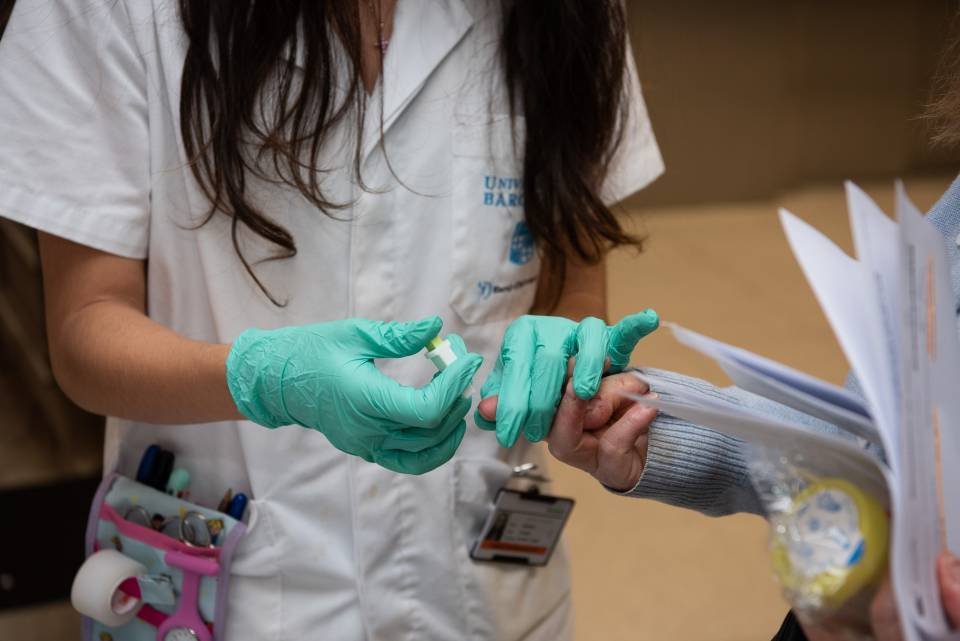As with previous coronavirus epidemics, in the current coronavirus disease 2019 (COVID-19) pandemic, there is a clear risk of diabetes decompensation, particularly of type 2. It is known that the risk of contracting COVID-19 is higher in people with diabetes and that the decompensation of diabetes it generates in these patients clearly increases the severity and mortality of the disease. There is not yet any clear answer as to why all this is happening.
Probably the greater risk of getting the disease is linked to the fact that people with diabetes usually have a less effective immune system, which makes them more vulnerable to infections.
The reason that COVID-19 has more serious complications in people with diabetes is still speculative and mainly based on experimental studies. One of the proposed mechanisms involves the reduced levels of the enzyme ACE2. COVID-19 is known to decrease the cellular receptor of an important enzyme that protects us from inflammation, angiotensin-converting-enzyme 2 (ACE2), this promotes further inflammation which induces cell damage and respiratory failure. These receptors are found in smaller quantities in people who suffer hyperglycaemia, as this makes their cells even more vulnerable to inflammation.
In addition, ACE2 is also expressed in pancreatic beta cells, responsible for synthesising insulin. It is believed that the virus could condition a decrease in the secretion of this hormone, with a consequent risk for people with diabetes.
A second mechanism through which it is believed that COVID-19 is more serious involves the enzyme dipeptidyl peptidase-4 (DPP-4) which, in other coronavirus epidemics, was shown to be a receptor for these viruses and where blocking this enzyme improved the progression of complications. DPP-4 plays an important role in glucose and insulin metabolism, as well as in inflammation. Currently, many people with diabetes are treated with DPP-4 inhibitor drugs (which reduce the concentrations of this enzyme), but it is not yet known whether this treatment could be a therapeutic option for COVID-19.
Given this relationship between COVID-19 and diabetes, it is important to consider practical guidelines and recommendations for action. In this sense, the article published on 23 April, 2020, in The Lancet is very relevant, as it provides guidelines and recommendations endorsed by a broad panel of international experts in diabetes and endocrinology. The main recommendations concerning the management of the disease by diabetes sufferers are the following:
People with diabetes who have not contracted COVID-19 should intensify metabolic control as a primary prevention measure. In addition, they should use telemedicine to contact healthcare professionals, if possible.
It is also stressed, as a fundamental measure, that people with diabetes who do not have COVID-19 should continue with their pre-established treatment. For people with type 2 diabetes who have hypertension or associated dyslipidemia, it is even more important that they continue with the antihypertensive and hypolipemic treatment they have been taking up to now.
In people with type 1 diabetes mellitus, infection with COVID-19 involves an increased risk of developing ketoacidosis (an accumulation in the blood and urine of molecules called ketone bodies that, in high concentrations, are toxic). The patient should quantify the ketone levels in their urine or blood if they notice symptoms compatible with ketoacidosis or hyperglycaemia.
Finally, people who have not been diagnosed with diabetes, but who have diabetes risk factors, should monitor their blood glucose levels if they develop COVID-19.
These recommendations, based on the experience of expert professionals (so far, no studies have been possible), may help reduce the impact of COVID-19 on diabetes sufferers. But undoubtedly, the key is to reduce the risk of infection as much as possible, and to do this it is necessary to comply with the protective measures recommended by the health authorities, since these are as effective in people with diabetes as in those without it.
Author: Dr. Enric Esmatjes, endocrinologist at the Clinical Institute of Digestive and Metabolic Diseases




